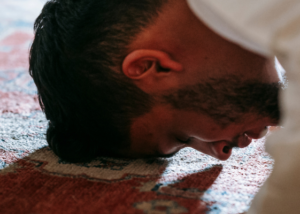Is it sinful to we miss Sunnah Muakkadah prayers? Or if we generally neglect something that is Sunnah?
Quran
Hadith
Islamic Text
بِسْمِ اللَّهِ الرَّحْمَنِ الرَّحِيمِ
In the Name of Allah Most Merciful Most Kind
Short Answer
It is very important to observe and respect the Sunnah of the Holy Prophet ﷺ. Despite that, it is not immediately sinful to miss Sunnah or Sunnah (muakkadah) prayers. Rather, it is sinful to miss that which is Fard and Wajib. However, if a prayer or action is Sunnah Muakkadah then it becomes sinful if one misses it regularly without an excuse.
Hadith
فَمَنْ رَغِبَ عَنْ سُنَّتِي فَلَيْسَ مِنِّي
Sayidina Anas (May Allah Most High be pleased with him) narrated that the Prophet ﷺ said, ‘So whosoever turns away from my Sunnah is not from me.’ (Sahih Muslim, 1401 – 5).
Explanation
The Hadith above emphasises the importance of respecting and following the Sunnah. However, it is not acceptable to treat something that is legally recommended as if it is an obligation. Unfortunately, many people who follow the Hanafi Madhab make this mistake. This stance is in contradiction to what the authoritative works of the Hanafi Madhab state.
Classical scholars
يُعَاتَبُ بِالتَّاءِ لَا يُعَاقَبُ، كَمَا أَفَادَهُ فِي الْبَحْرِ وَالنَّهْرِ، لَكِنْ فِي التَّلْوِيحِ تَرْكُ السُّنَّةِ الْمُؤَكَّدَةِ قَرِيبٌ مِنْ الْحَرَامِ يَسْتَحِقُّ حِرْمَانَ الشَّفَاعَةِ، لِقَوْلِهِ – عَلَيْهِ الصَّلَاةُ وَالسَّلَامُ -: «مَنْ تَرَكَ سُنَنِي لَمْ يَنَلْ شَفَاعَتِي». اهـ. وَفِي التَّحْرِيرِ: إنَّ تَارِكَهَا يَسْتَوْجِبُ التَّضْلِيلَ وَاللَّوْمَ،. اهـ. وَالْمُرَادُ التَّرْكُ بِلَا عُذْرٍ عَلَى سَبِيلِ الْإِصْرَارِ كَمَا فِي شَرْحِ التَّحْرِيرِ لِابْنِ أَمِيرِ حَاجٍّ، وَيُؤَيِّدُهُ مَا سَيَأْتِي فِي سُنَنِ الْوُضُوءِ مِنْ أَنَّهُ لَوْ اكْتَفَى بِالْغَسْلِ مَرَّةً إنْ اعْتَادَهُ أَثِمَ، وَإِلَّا لَا
One is blamed but not punished (for leaving Sunnah Muakkadah). As was mentioned in al-Bahr and al-Nahr. However, in al-Talweeh (he mentioned): leaving Sunnah Muakkadah is close to Haram and it leads to being prevented from the intercession. Due to his ﷺ words, whoever neglects my Sunnah will not receive my intercession.
In al-Tahreer (he mentioned), the one who neglects it, necessitates misguidance and blame. What is meant by this is, leaving it (Sunnah Muakkadah) without an excuse in a habitual manner. As has been mentioned in Sharh al-Tahreer by Ibn Ameer al-Haaj. This is supported by what was mentioned in the (section on) the Sunnahs of Wudu: If he suffices with washing a single time (instead of three), if he does so habitually then he is sinful, otherwise he is not. (Imam Ibn Abideen, Radd al-Muhtaar).
وَظَاهِرُهُ حُصُولُ الْإِثْمِ بِالتَّرْكِ مَرَّةً، وَيُخَالِفُهُ مَا فِي شَرْحِ التَّحْرِيرِ أَنَّ الْمُرَادَ التَّرْكُ بِلَا عُذْرٍ عَلَى سَبِيلِ الْإِصْرَارِ، وَكَذَا مَا يَأْتِي قَرِيبًا عَنْ الْخُلَاصَةِ، وَكَذَا مَا مَرَّ مِنْ سُنَنِ الْوُضُوءِ مِنْ أَنَّهُ لَوْ اكْتَفَى بِالْغُسْلِ مَرَّةً، إنْ اعْتَادَهُ أَثِمَ وَإِلَّا لَا، وَكَذَا مَا فِي شَرْحِ الْكَيْدَانِيَّةِ عَنْ الْكَشْفِ. (رد المحتار على الدر المختار)
The apparent of it is that leaving it even once results in sin. However, it is contradicted by that which is in al-Tahreer, that the meaning is neglecting it regularly without an excuse. The like of it will be mentioned from al-Khulasah shortly. Likewise, that which was mentioned in the Sunan of al-Wudu, that if he suffices with a single wash instead of three, then it is sinful if he does so habitually, otherwise it is not. Similarly, in the commentary of al-Kaydaniyah from al-Kashf. (Imam Ibn Abideen, Radd al-Muhtaar).
Consequences of neglecting Sunnah Muakkadah
After mentioning various statements regarding neglecting Sunnah Muakkadah, Imam Ibn Abideen explains that they are reconciled by recognising that it is only sinful if one neglects Sunnah Muakkadah habitually without an excuse:
فَيَتَعَيَّنُ حَمْلُ التَّرْكِ فِيمَا مَرَّ عَنْ الْبَحْرِ عَلَى التَّرْكِ عَلَى سَبِيلِ الْإِصْرَارِ تَوْفِيقًا بَيْنَ كَلَامِهِمْ. (رد المحتار على الدر المختار)
So it is necessary to consider neglect, as mentioned previously form al-Bahr, to refer to habitual neglect. This will reconcile between their (the scholars) statements. (Imam Ibn Abideen, Radd al-Muhtaar).
Further, in the Nass (text) below, Imam al-Tahtawi clarifies that even in situations where there is sin in neglecting Sunnah Muakkadah, the sin is slight. Although one should try to avoid all sins, it is required to differentiate between major sins and those that are slightly sinful. As such, one should not present the two as being equally severe.
ومن إعتاد تركه اثم على المختار كذا في الخلاصة والمراد بالإثم اليسير منه كما هو حكم كل سنة مؤكدة. (حاشية على مراقي الفلاح)
Whoever regularly (habitually) misses it (Sunnah Muakkadah) is sinful, according to the preferred (soundest) opinion. This has been mentioned in al-Khulasah. What is meant by sin is slight (sin). As is the ruling for all Sunnah Muakkadah. (Imam Ahmad bin Muhammad al-Tahtawi, Haashiyah ala Maraaqi al Falah).
عَلَى أَنَّهُ حَكَى فِي الْخُلَاصَةِ خِلَافًا فِي تَرْكِهِ، قِيلَ يَأْثَمُ وَقِيلَ لَا. قَالَ: وَالْمُخْتَارُ إنْ اعْتَادَهُ أَثِمَ لَا إنْ كَانَ أَحْيَانًا انْتَهَى. وَيَنْبَغِي أَنْ نَجْعَلَ شِقَّيْ هَذَا الْقَوْلِ مَحْمَلَ الْقَوْلَيْنِ فَلَا اخْتِلَافَ حِينَئِذٍ وَلَا إثْمَ لِنَفْسِ التَّرْكِ بَلْ لِأَنَّ اعْتِيَادَهُ لِلِاسْتِخْفَافِ وَإِلَّا فَمُشْكِلٌ أَوْ يَكُونُ وَاجِبًا. (فتح القدير)
In al-Khulasah he mentioned a difference with regards to neglecting it (Sunnah Muakkadah). It has been said that it is sinful, and it has been said it is not (sinful). He said, the preferred opinion is that it is sinful if he regularly (habitually) misses it. If it (missing it) is occasional, then no (it is not sinful).
It is appropriate for us to consider the two halves of this statement to be the elucidation of the two opinions. In which case there will be no (true) difference of opinion. Therefore, missing it (Sunnah Muakkadah) is not sinful in itself. Rather, if he habitually misses it (then sin is incurred). This is due to undermining (Sunnah Muakkadah). Otherwise, it would be confusing, or it (the ruling) would be that of Wajib (not Sunnah Muakkadah). (Imam Kamal al-Deen bin al-Humaam).
Examples of Sunnah Muakkadah
(وَتَثْلِيثُ الْغَسْلِ) الْمُسْتَوْعِبُ؛ وَلَا عِبْرَةَ لِلْغَرَفَاتِ، وَلَوْ اكْتَفَى بِمَرَّةٍ إنْ اعْتَادَهُ أَثِمَ، وَإِلَّا لَا
(قَوْلُهُ: وَإِنْ اعْتَادَهُ أَثِمَ) قَالَ فِي النَّهْرِ: وَلَوْ اقْتَصَرَ عَلَى الْأُولَى فَفِي إثْمِهِ قَوْلَانِ، قِيلَ: يَأْثَمُ لِتَرْكِ السُّنَّةِ الْمَشْهُورَةِ، وَقِيلَ: لَا لِأَنَّهُ قَدْ أَتَى بِمَا أُمِرَ بِهِ كَذَا فِي السِّرَاجِ وَاخْتَارَ فِي الْخُلَاصَةِ أَنَّهُ إنْ اعْتَادَهُ أَثِمَ وَإِلَّا لَا، وَيَنْبَغِي أَنْ يَكُونَ هَذَا الْقَوْلُ مَحْمَلُ الْقَوْلَيْنِ. اهـ
أَقُولُ: لَكِنَّ فِي الْخُلَاصَةِ لَمْ يُصَرِّحْ بِالْإِثْمِ، وَإِنَّمَا قَالَ: إنْ اعْتَادَهُ كُرِهَ وَهَكَذَا نَقَلَهُ فِي الْبَحْرِ، نَعَمْ هُوَ مُوَافِقٌ لِمَا قَدَّمْنَاهُ عَنْ شَرْحِ التَّحْرِيرِ مِنْ حَمْلِ اللَّوْمِ وَالتَّضْلِيلِ لِتَرْكِ السُّنَّةِ الْمُؤَكَّدَةِ عَلَى التَّرْكِ مَعَ الْإِصْرَارِ بِلَا عُذْرٍ. (رد المحتار على الدر المختار)
Imam al-Haskafi: Washing thrice. (Meaning) completely. No consideration is given to the number of scoops. If he sufficed with (washing) once, then if he does so habitually then it is sinful. Otherwise it is not.
Imam Ibn Abideen: His saying, if he does so habitually then it is sinful. Otherwise it is not. In al-Nahr he said, if he suffices with the first then there are two opinions regarding it being sinful or not. It is said that it is sinful for leaving a well-known Sunnah. And it is said that it is not (sinful), because he has done that which he was commanded (to do). This has been mentioned in al-Siraj. In al-Khulasah he preferred the opinion that it is sinful if he does so habitually and otherwise not. It is appropriate that this should be the reconciliation of both opinions.
I say: He did not explicitly mention sin in al-Khulasah. He said, if he makes a habit of it then it is disliked (Makruh). In al-Bahr he narrated it in this manner. However, it (the reconciliation) is aligned with what we have mentioned from Sharh al-Tahreer. Namely, considering blame and misguidance for leaving Sunnah Muakkadah to refer to leaving Sunnah Muakkadah habitually and without an excuse. (Radd al-Muhtaar).
فإن ترك رفع اليدين هل يأثم؟ تكلموا فيه بعضهم قالوا: يأثم، وبعضهم قالوا: لا يأثم، وقد روي عن أبي حنيفة ما يدل على هذا القول، فإنه قال: إن ترك رفع اليدين جاز وإن رفع فهو أفضل، وكان الشيخ الإمام الزاهد الصفار يقول: إن ترك أحياناً لا يأثم وإن اعتاد ذلك يأثم. (المحيط البرهاني في الفقه النعماني)
If he neglects to raise his hands (at the beginning of the prayer) is it sinful? They discussed this issue. Some of them said, he is sinful. Others said, he is not sinful. Indeed, it has been narrated from (mam) Abu Hanifah, that which supports this (second) opinion. He said, if he neglects to raise his hands then it is valid, but if he raises them then it is superior. The ascetic Shaykh and Imam al-Safaar used to say, if he neglects it sometimes then he is not sinful, but if he makes a habit of it then he is sinful. (Imam Burhan al-Deen al-Bukhari, al-Muheet al-Burhaani).
Explanation
In the above Nusoos (texts), classical Hanafi scholars are discussing two examples of Sunnah Muakkadah.
- Firstly, washing the limbs thrice during Wudu.
- Secondly, raising the hands in Salah.
In both cases, they [the scholars] explained that it is only sinful to miss or neglect the Sunnah Muakkadah if it is done regularly without an excuse.
And Allah Most High Knows Best.
–Answered by Shaykh Noorud-deen Rashid (17.04.23)






